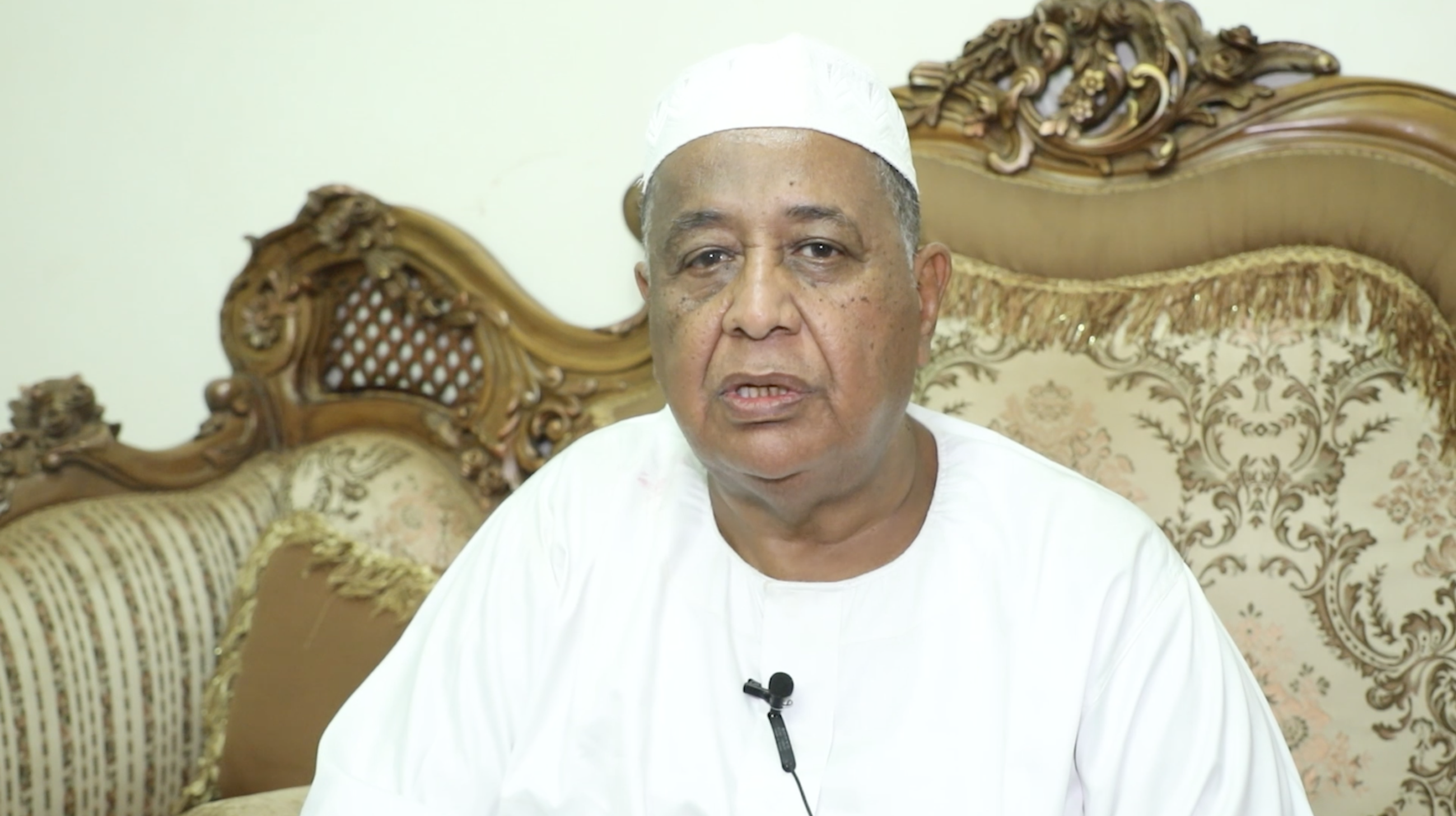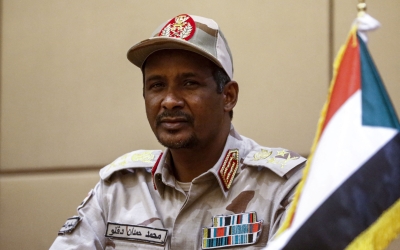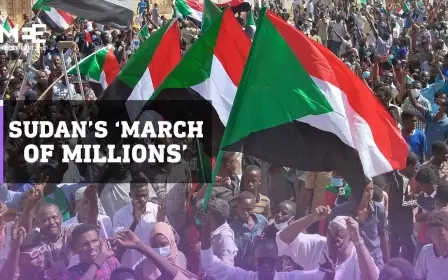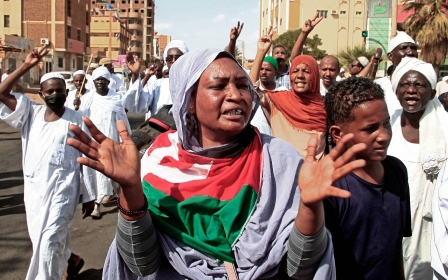Sudan coup: Bashir-era foreign minister re-arrested day after release

Ibrahim Ghandour, head of Sudan's disbanded former ruling National Congress Party and a former foreign minister under deposed President Omar al-Bashir, was re-arrested on Monday less than a day after being released from jail, a source from his family told Reuters.
The release of Ghandour and several other Bashir allies in recent days, following a military coup last Monday, had come under criticism from opponents of military rule.
Ghandour had previously been detained under orders of a taskforce intended to dismantle and prevent the return of Bashir's three-decade rule, which ended in 2019.
Speaking to Middle East Eye in Khartoum on Sunday, the day he was released, Ghandour called on "the whole nation to start a process of national reconciliation. This country will not achieve prosperity for its people unless we all join hands to go through the interim period until we reach fair, free elections.
"We should all jump over our personal grievances and we look forward to unite our people."
"I'm sure that we will all be supporting whatever national, non-partisan government that is to take over in the coming few days," he added.
Ghandour was released with two former Bashir-era intelligence officials. Two other Islamist Bashir allies, including businessman Abdelbasit Hamza, had also been released on Saturday, judiciary sources told Reuters.
Sudan's public prosecutor was also dismissed on Sunday night.
The government spokesman's office, still aligned with civilian authorities who were removed last week, said in a statement that the releases of Bashir-era figures "represent a setback against the state of institutions and the rule of law".
"This step makes clear the political cover for the coup and its real ideological orientation," the office said in a Facebook post.
Bashir is wanted by the ICC for alleged war crimes, genocide and crimes against humanity during the conflict in Darfur, the region in western Sudan where an estimated 300,000 people were killed and millions displaced from 2003 onwards.
In August, Sudan's cabinet decided to hand over al-Bashir and other "wanted officials" to the International Criminal Court.
'March of millions'
Sudanese anti-coup protesters were manning barricades in the capital Khartoum on Sunday, a day after a deadly crackdown on mass rallies, as a defiant civil disobedience campaign against the military takeover entered its seventh day.
Tens of thousands turned out across Sudan for Saturday's "march of millions" demonstrations against top military officer General Abdel Fattah al-Burhan, who dissolved the government, declared a state of emergency and detained Sudan's civilian leadership on Monday.
At least three people were shot dead and more than 100 people wounded during Saturday's demonstrations, according to medics, who reported that those killed had bullet wounds in their head, chest or stomach.
With Saturday's deaths, the number of protesters killed by security forces this week climbed to at least 14, according to a Reuters count.
However, one senior US official told AFP they estimate that 20 to 30 people have died.
Police forces have denied the killings, or using live bullets, in contradiction to eyewitness accounts.
Sudan had been ruled since August 2019 by the joint civilian-military Transitional Sovereign Council, alongside Prime Minister Abdalla Hamdok's government, as part of the now derailed transition to full civilian rule following the removal of longtime ruler Bashir.
Hamdok and other top leaders have been under military guard since the takeover, either in detention or effective house arrest.
The power grab sparked international condemnation, with world powers demanding a swift return to civilian rule and calling for the military to show "restraint" against protesters.
US President Joe Biden has called the coup a "grave setback", while the African Union has suspended Sudan's membership for the "unconstitutional" takeover.
The World Bank and the United States froze aid, which will hit hard in a country already mired in a dire economic crisis.
But Burhan, who became de facto leader after Bashir was deposed in 2019 following huge youth-led protests, has insisted the military takeover was "not a coup" but an attempt to "rectify the course of the Sudanese transition".
Reuters contributed to this report.
Middle East Eye delivers independent and unrivalled coverage and analysis of the Middle East, North Africa and beyond. To learn more about republishing this content and the associated fees, please fill out this form. More about MEE can be found here.





